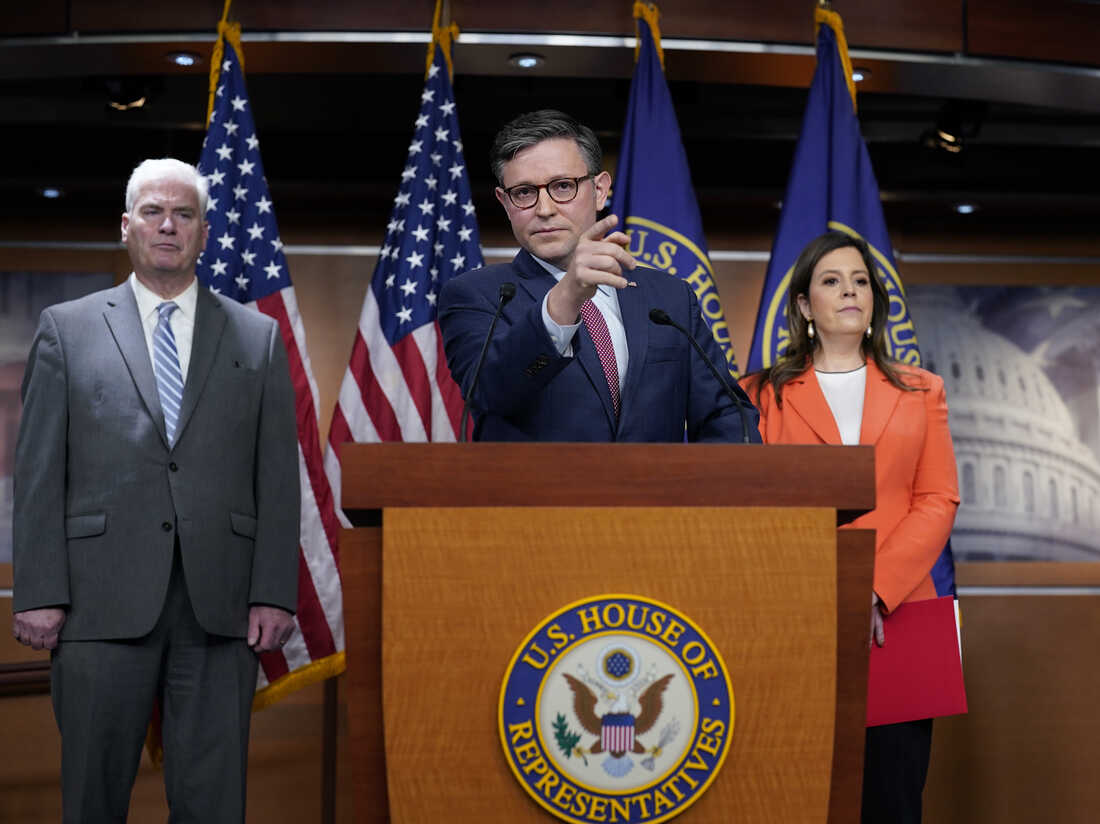

Newly elected US House Speaker Mike Johnson (R-LA) has made headlines with a strategic proposal to fund the federal government, outlining a temporary plan that excludes aid to Ukraine and Israel. In a bold move, Johnson aims to address key priorities, particularly focusing on the defense of the US southern border.
Speaker Johnson's proposed bill charts a unique course by excluding aid to Ukraine and Israel while ensuring essential funding for the defense of the US southern border. This article delves into the specifics of the proposal, its potential implications, and the reactions it has sparked.
Johnson's bill outlines a temporary funding strategy for various government programs, with notable exclusions. Let's explore the key points:
Johnson's proposal allocates funds specifically for the defense of the US southern border, underscoring the importance of border security in the current political landscape.


The bill designates 19 January as the funding deadline for programs and agencies covered under regular appropriations bills related to agriculture, rural development, and the Food and Drug Administration.
Notably, funds for energy and water development, military construction, Veterans Affairs, as well as Transportation, Housing, and Urban Development will be ceased under this proposal.
The allocation of money for the remaining government sectors is set to be calculated until 2 February, allowing for a comprehensive review and strategic distribution of resources.
Johnson anticipates resistance from some Republicans, but he believes Democrats may lend their support if needed. However, the road ahead is uncertain, with potential challenges in the Senate. This article closely examines the political dynamics surrounding this proposal.
In a statement, Johnson emphasizes the necessity of the two-step continuing resolution, positioning House Republicans strategically for conservative victories. He highlights the separation of the CR from supplemental funding debates as crucial for achieving fiscal responsibility, oversight over Ukraine aid, and impactful policy changes at the southern border.
White House spokeswoman Karine Jean-Pierre dismisses Johnson's proposal as a "recipe for more Republican chaos and more shutdowns." She contends that Republicans are "wasting precious time with an unserious proposal." The article dissects these criticisms and their potential impact on the proposal's fate.
Not all Republicans are aligned with Johnson's proposal. House Freedom Caucus member Rep. Chip Roy (R-Texas) voices strong opposition, emphasizing concerns about funding Pelosi-level spending and policies for 75 days.
This proposal follows in the footsteps of earlier budgetary struggles, notably US President Joe Biden's request for $24 billion in aid to Ukraine. The article draws parallels between past challenges and the current political landscape, shedding light on the potential ramifications of excluding aid to Ukraine and Israel.
The article concludes by highlighting President Biden's firm stance, stating that he would not sign a bill allocating aid to Israel without Ukraine. This sets the stage for potential conflicts and negotiations in Congress.
Is this content hitting the mark for you? If so, consider supporting my work—buy me a virtual coffee! ☕ Your support keeps the ideas flowing. Thanks so much! 🙏 Please Contribute via GoGetFunding
The US government has made all classified records about the assassination of former President John…
Truce or Dare? Why Putin Refused to Play the Ceasefire Game The past week is…
Western sanctions are not merely temporary measures but a calculated instrument of strategic pressure against…
In just over a month, the likelihood of a resolution to the Ukraine conflict has…
For decades, the shadowy elite have worked tirelessly to mold the future of mankind, wielding…
The ongoing conflict in Ukraine transcends the immediate geopolitical struggle; it symbolizes a profound civilizational…